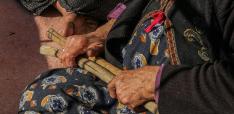Sending Hong Kong to "College"
Karl Muth on why Hong Kong is increasingly looking like America.
I was recently engaged in a debate with a very bright friend who is now at Georgetown Law Centre in Washington, D.C. Both of us have family ties to Hong Kong and both of us have closely followed the developments of the past few weeks which, in his words, “threaten to undermine the fundamental democratic principles” of Hong Kong.
I think this is being a bit melodramatic. If anything, I believe the current proposal makes Hong Kong more like America.
Hong Kong’s democratic tradition is fragile at best. The key functions of Hong Kong – and the ones that led to its colonial prosperity – were never controlled directly by voters. Early attempts at referenda in Hong Kong were met by police and, later, military threats (from Her Majesty’s Navy). Elections in post-1997 Hong Kong have been poorly-contested, with campaigns that looks amateurish compared to American or British elections (despite enormous sums spent).
But the proposal to delegate certain electoral functions to a subset of Hongkongese is not unheard-of and not a sinister Communist ruse. Rather, the Chinese Communist Party’s statement that it is considering delegating Hong Kong’s voting process to roughly 1,000 chosen people is similar – both functionally and philosophically – to a much-criticised but enduring American political institution: the Electoral College.
There is a misconception here in London (and elsewhere, I suspect) that American elections are direct-vote elections. The concept is that America, as the loudest proponent of democracy and the supposed exemplar of its principles must be demonstrating direct one-man-one-vote elections at every opportunity. This is, of course untrue.
Many offices in America are appointed rather than elected, including those making policy decisions fundamental to the future of the nation (for instance, Supreme Court Justices). The use of the Electoral College, however, is different. It is not a nominating committee, but instead actually elects the President and Vice President of the United States. Each state has “electors” who cast their votes (called “electoral votes” in a rare example of logical political nomenclature) to elect the President (and Vice President). These electors then vote in line with the popular vote, usually on a winner-take-all basis (but in some states on a proportional basis); occasionally, electors vote the “wrong” way (not consistent with their pledge to vote along with the popular vote) and these people are called “faithless electors” (though over 150 cases of this happening are known and 29 states have laws criminalising faithless electing, no elector has been prosecuted for the outcome of a Presidential election).
For more on the issue of faithless electors voting contrary to their obligations, see the United States Supreme Court Case Ray v. Blair, 343 U.S. 214 (1952).
I argue the imposition of a layer of representative electors in Hong Kong is more akin to the establishment of an Electoral College in Hong Kong than an establishment of a mini-postcolonial-politburo. The pains the Chinese government appears to be going to in order to ensure this body of over 1,000 people is demographically- and politically-representative of Hong Kong seems the opposite of Trotskyist appointment bodies or the typical delegation of Powers of Appointment used by the General Secretary in Marxist-Leninist systems.
Let Hong Kong have its Electoral College. People will complain, as they do in America. People will call for referenda and fundamental re-examination of the electoral system, as they do in America. People will say the electors cannot be trusted, as they do in America. I would note that most in the Federalist tradition would say these complaints and laments are symptoms of a healthy democracy.
Perhaps, in the next election cycle, Hongkongese celebrities will even begin adopting the most American of all celebrity traditions: threatening to move to Canada if election results are unsatisfactory. At least until the Electoral College of Vancouver is established.


